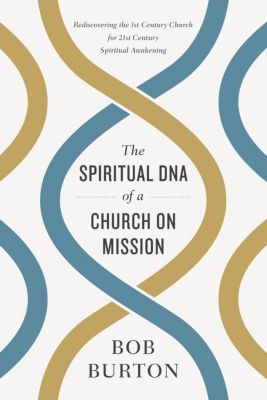
By Scott McConnell
This decade is off to a rocky start. Seismic disruptions from a pandemic, incivility across social groups, and numerous local disasters have shaken American churches.
We know God is a foundation that cannot be shaken, but with everything else “up in the air” it is hard to mentally get our bearings and chart a course for our church. Yet, that is exactly what pastors are called to do: point people to the priorities that matter.
Our priorities should always be kingdom priorities. But in uncertain times, we must be especially focused only on God’s calling. We are better able to do this when we have the right perspective, the right mindset, and as we exhibit the right tone.
Our priorities should always be kingdom priorities. But in uncertain times, we must be especially focused only on God’s calling. — @smcconn Click To TweetIn this stressful and seemingly chaotic season of life, we can look back at the end of Jesus’ time on earth and what was surely an even more stressful moment for His disciples. In one of His final prayers, Jesus stressed the importance of both the gathering and sending of His followers. Those priorities can and should guide us today during our own time of disruption.
Gathering
At the end, Jesus’ focus was on bringing God glory as He was prepared to be obedient to die on a cross. Yet, immediately before He was betrayed, He prays for two specific priorities for us as we remain in Him. First, He prayed that those who believe in Jesus Christ would all be one (John 17:21). His followers exemplified that unity, in part, by physically gathering together.
As we read of the disciples after Jesus’ ascension to heaven, we see that they literally were staying at the same upstairs room together in Jerusalem. There they were united in prayer (Acts 1:14). At Pentecost, they were still together in one house. After Pentecost, they devoted themselves to meeting together every day in the temple (Acts 2:46).
As the New Testament church matured, the writer of Hebrews continues to reflect the same priority. Hebrews 10 exhorts us to faithfulness by drawing near to God, holding on to the confession of our hope, and placing great importance on gathering in person. This gathering is important because it allows believers to “watch out for one another to provoke love and good works” and for “encouraging each other” (Hebrews 10:24-25).
During short periods when it is not safe to meet in person, we should mourn this loss and build anticipation for meeting together soon.
Believers need to be reminded (and many taught for the first time) that God’s design is for a local body of believers to regularly gather in person. — @smcconn Click To TweetDuring periods when emergency precautions are not needed, believers need to be reminded (and many taught for the first time) that God’s design is for a local body of believers to regularly gather in person. We can err by getting legalistic focusing on which gathering, at what times, and how often. But we will not err by calling people to live as God designed.
Unity is essential for the functioning of a local congregation. Unity must be a priority. In principle, unity can be achieved virtually, but unity in life requires personal interaction.
Online ministry will continue to grow in importance to connect with people in our society that have few habits in their lives that involve meaningful in-person interaction. But this ministry should always encourage believers to take a next step toward gathering in person.
During the pandemic, gathering people will take the same work it took to reach them in the first place. On average 9 in 10 people in your congregation intend to return, according to Lifeway Research, but they need help making a habit of these good intentions.
On average 9 in 10 people in your congregation intend to attend church at least as often as they did prior to COVID, according to Lifeway Research, but they need help making a habit of these good intentions. — @smcconn Click To TweetMake the effort to invite each individual in your congregation back. Encourage those who are meeting together to invite those they don’t see. Do something special to provide an additional nudge to come this week (e.g., recognize specific groups, provide food, add some special music). Add some social events to rekindle relationships within the congregation. Use people’s giftings to open ways for them to serve somewhere in the church.
You may feel like you shouldn’t have to do these things, but there are sheep missing from your fold who need to be sought after. Jesus said a good shepherd leaves the 99 in safety to go after the one sheep who is lost and then rejoices when they are brought back (Matthew 18:12-14). This same care should extend to those in your congregation who are missing. The gathering of each local congregation must be a priority and done with intentionality.
Sending
Not only did Jesus pray His followers would be one, but He also prayed that our unity would spill out into being a witness to those around us. He desired us to be one so “that the world may know you have sent Me and have loved them as You have loved Me” (John 17:23). Our unity is to be part of our witness.
Small groups are the hinge that allows a local church to simultaneously be gathering believers together and sending them out. — @smcconn Click To TweetSmall groups are the hinge that allows a local church to simultaneously be gathering believers together and sending them out. Participation in groups with other Christians leads to our being more involved in congregational gathering and community evangelism.
The ability of a church to gather its congregation is directly related to its ability to connect them in small groups. A Lifeway Research study found that among churchgoers who participated in a small group or Sunday School class in January of 2020 before COVID-19, 46% attended worship 3 or 4 times in person in January 2021 compared to only 25% of those who had not been in a small group.
Yet, a church’s ability to send its people to minister and share the gospel outside the walls of the church is also related to small groups. It is in this setting that discipleship best occurs. Those engaging weekly in groups exhibit higher levels of sharing with someone how to become a Christian, inviting people to church, and serving others in your community.
Those engaging weekly in groups exhibit higher levels of sharing with someone how to become a Christian, inviting people to church, and serving others in your community, according to Lifeway Research. Click To TweetCreate the expectation that every adult in your congregation connects regularly in a small group. This emphasizes every person’s participation is important to the mission of the church and there are no spectators. Only 31% of churchgoers strongly agree their church communicates the importance for every adult to be involved in a small class or group. The churches that do stress the value of small groups, however, see much higher levels of participation.
Work with your small group teachers and worship leaders to challenge your congregation to pray daily for opportunities to tell others about Jesus Christ. This isn’t a program. It’s a personal priority. People may resist this at first. Many won’t see any need to pray this often. Yet, our research has shown that the lives of those willing to ask God often for opportunities to share the gospel are different. Not only are they sharing the gospel more, they are noticeably closer to God.
In the wake of this pandemic, church leaders are being pulled in a multitude of directions. Numerous programs and people are vying for your time and attention. But as you seek to lead your church through this decade, two priorities should shape your congregational ministry: gathering and sending.









